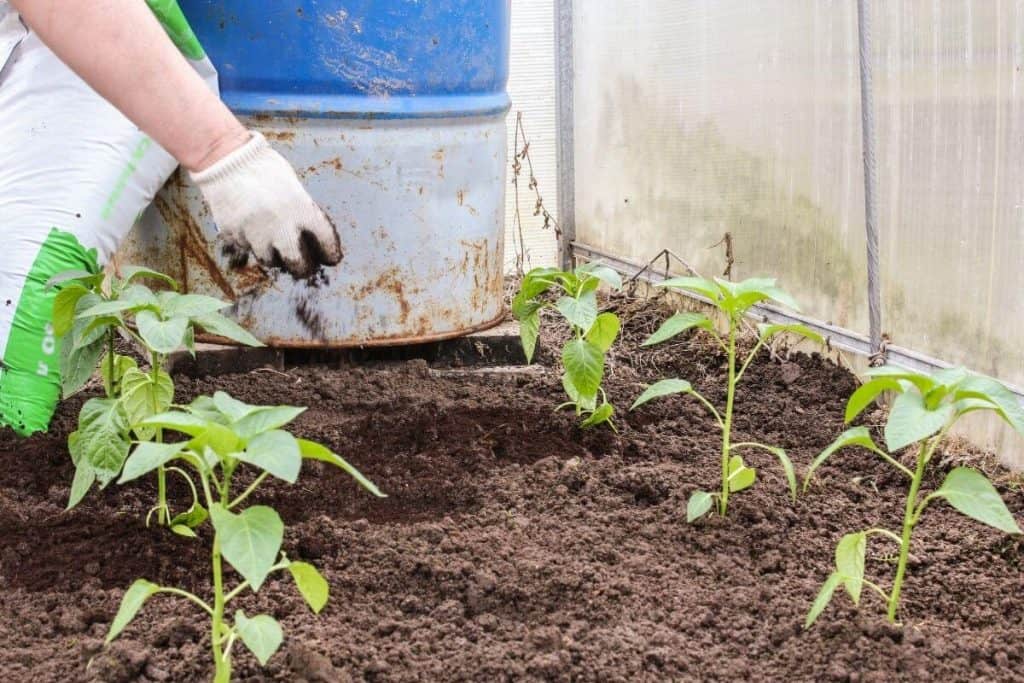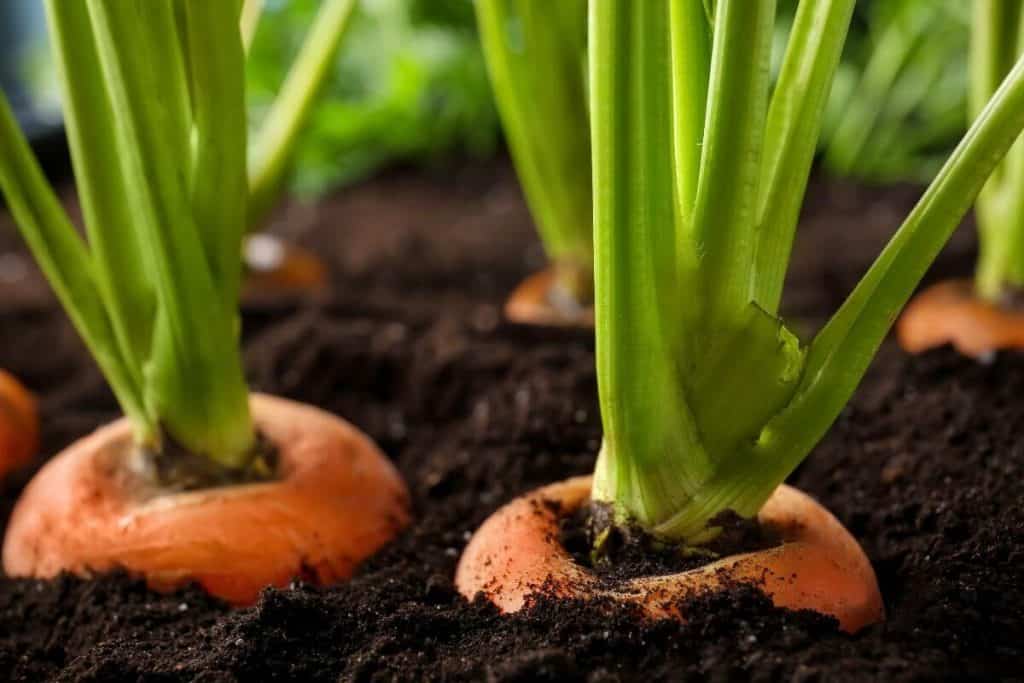Coffee grounds are becoming a popular compost material. Coffee grounds provide nitrogen, which is needed in the growth of most plants.
However, not all plants will benefit from this nitrogen-filled compost because of one reason or the other. But which plants do not like coffee grounds? Plants like lavenders, orchids, and pothos will not benefit from coffee grounds.
Read on as we discuss some of these plants that do not like coffee grounds and other plants that might benefit from coffee grounds.
Table of Contents
Is It OK To Add Coffee Grounds to Fertilizer?
Yes, provided that the plant will benefit from coffee grounds. Adding coffee grounds to fertilizer will enable the soil to hold water better with a slightly increased acidic level.
What is in Coffee Grounds?
We are certain you know what coffee grounds are but might not have thought of coffee grounds as compost material.
As already mentioned, coffee grounds have nitrogen which is a critical component needed in the growth of plants. Coffee grounds are also highly acidic. This means that adding coffee grounds to your soil increases the acidity level, which alters the soil ph.
Increasing the acidity or altering the PH level of soil might benefit some crops and harm other plants. It follows that before adding coffee grounds to the soil, you need to consider the soil's acidity level.
You don't want to add more acid to the soil that has a high level of acidity. You can buy a simple pH testing kit to find out the PH level of the soil.
Which Plants Do Not Like Coffee Grounds?

Plants like roses, blueberries, azaleas, hydrangeas, rosemary, carrots, radishes, rhododendrons thrive in soil with high-level acidity and thus like coffee grounds.
This does not apply to plants like lavenders, orchids, and pothos, which detest soils with high acidity levels.
Now, let's discuss some plants that we do not benefit from the addition of coffee grounds:
1. Lavender
Lavender plants thrive on full sun, with hot, dry, sandy, and non-acidic soil. It follows that this beautiful plant will not benefit from the addition of coffee grounds to it. Growing lavenders in soil with a high level of acidity will deter their growth.
If you find out that your lavender soil is acidic, add lime which will ultimately decrease the soil acidity level and increase its alkalinity soil. Lavenders thrive in alkaline soil.
Lavenders can be grown in small containers of about two centers. In contrast, larger species of lavenders will need about three-foot centers containers. Make sure that the container has drainage holes.
2. Orchids
Remember that we mentioned that coffee has nitrogen which might facilitate healthy growth in some plants. This, however, doesn't apply to orchids because they don't have organisms to break down the nitrogen in coffee.
Mulching with coffee grounds which might benefit some plants like roses, is disastrous for orchids. Mulching using coffee grounds on orchids can result in root rot. This is because orchid roots cannot absorb nitrogen.
Don't even make the mistake of sprinkling coffee grounds on the topsoil of orchids. This will cause a decomposition which would attract gnats and molding.
3. Pothos
Pothos plants are a popular and common house plant probably because it is easy to grow and requires minimum care. The addition of coffee grounds to pothos will be detrimental to this beautiful houseplant. This is because pothos does not like acidic soils.
While pothos might benefit in terms of nitrogen that comes with coffee grounds, the proportional increase in the soil's acidic level can be harmful to the plant.
However, pothos can benefit from the coffee ground if the soil has a very low acidic level. Thus, if you are keen on adding coffee grounds to pothos, make sure that the soil has a low acidic level; a simple pH testing kit can help you check the soil’s pH level.
4. Rosemary
Rosemary does not like acidic soil and thus might not benefit when coffee grounds are added to its potting soil.
However, you can reduce the acidic level of coffee grounds by diluting them with water before watering your Rosemary with it.
Coffee grounds are beneficial to Rosemary because they contain essential nutrients that facilitate healthy growth and development. However, the high level of acidity of the grounds can be a limiting factor.
5. Cactus
Cactus is a desert plant; it requires a well-draining soil with a balanced mix of organic and inorganic materials. Coffee grounds can easily alter this balanced mix which will deter the growth rate of your cactus plant.
Coffee grounds contain caffeine which hinders the growth of plants, especially cactus. Naturally, coffee plants produce caffeine as a competition mechanism that allows the coffee plant to dominate its space.
It follows that the addition of caffeine to your cactus plant might end up killing it.
Which Plants Like Coffee Grounds?

While some plants will not benefit from the acidic nature of coffee grounds, other plants need coffee grounds to facilitate healthy growth. Let’s examine some of these plants below:
1. Sweet Potatoes
When it comes to a list of plants that love acidic soil, sweet potatoes should probably be at the top of the list. The addition of coffee grounds to your sweet potatoes plant will show excellent and quick results.
2. Tomatoes
Tomatoes are acidic fruits which means that they will benefit from acidic soil, which is precisely what coffee grounds provide to soils. If you’re growing tomatoes in your backyard, the acidic-loving tomatoes will definitely benefit from coffee grounds.
3. Holly
Holly is famous for its many historical and cultural legends and beliefs. Also, this plant is known for its acidic soil-loving nature and thus will love a healthy dose of coffee grounds.
4. Gardenia
Famous for their strong scent, gardenias are highly tolerable plants that can withstand low temperatures. This plant will also benefit from the addition of fresh coffee grounds to its soil.
5. Gooseberries
Gooseberries are beneficial plants known for their antidote properties to many health issues, such as strokes, heart diseases, UV ray damages, gum diseases, excess salts, and type 2 diabetes.
The addition of coffee grounds to this beneficial plant will neutralize the plant’s acidity and get the plant to glow.
How to Use Coffee Grounds on Plants
While some plants go well with coffee grounds, how you use coffee grounds on these plants will determine how well the plants will flourish.
Coffee grounds are most beneficial when used in compost. For coffee composts, the mix ratio of coffee grounds and compost should be 1:3 or 1:2. Alternatively, you can just use an online compost calculator to determine the best ratio.
Getting a balanced ratio is pretty important; you don't want to suppress the plants' roots, which will result in a dramatic decrease in essential soil bacteria.
Also, the compost should only be used to cover the topsoil with a layer of a minimum thickness of 1.5 inches.
Coffee grounds can also be used as mulch following the composting procedure highlighted here. Alternatively, you can use wood chips on the cover to accelerate the soil’s germination.




